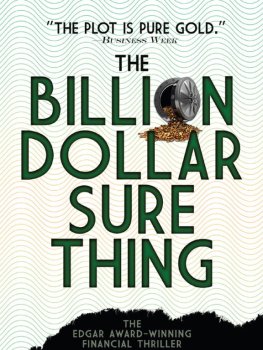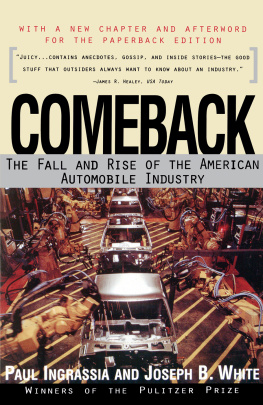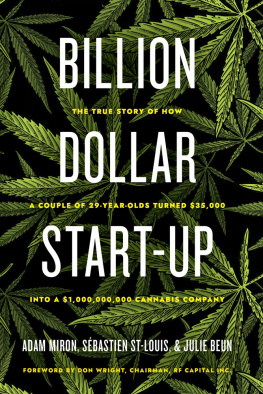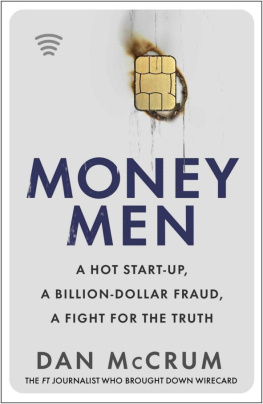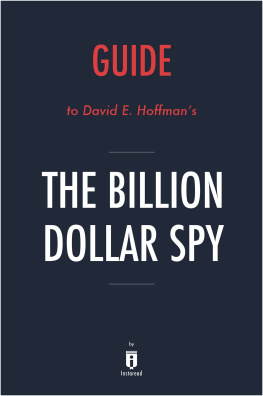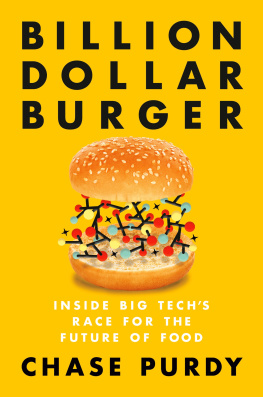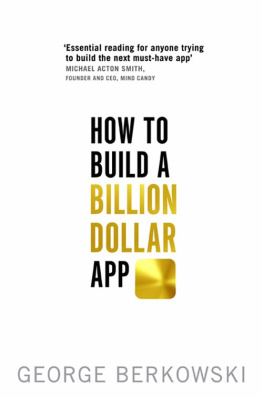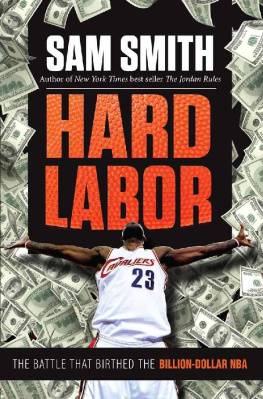Lawrence Ingrassia - Billion Dollar Brand Club
Here you can read online Lawrence Ingrassia - Billion Dollar Brand Club full text of the book (entire story) in english for free. Download pdf and epub, get meaning, cover and reviews about this ebook. publisher: Henry Holt and Co., genre: Detective and thriller. Description of the work, (preface) as well as reviews are available. Best literature library LitArk.com created for fans of good reading and offers a wide selection of genres:
Romance novel
Science fiction
Adventure
Detective
Science
History
Home and family
Prose
Art
Politics
Computer
Non-fiction
Religion
Business
Children
Humor
Choose a favorite category and find really read worthwhile books. Enjoy immersion in the world of imagination, feel the emotions of the characters or learn something new for yourself, make an fascinating discovery.
- Book:Billion Dollar Brand Club
- Author:
- Publisher:Henry Holt and Co.
- Genre:
- Rating:3 / 5
- Favourites:Add to favourites
- Your mark:
- 60
- 1
- 2
- 3
- 4
- 5
Billion Dollar Brand Club: summary, description and annotation
We offer to read an annotation, description, summary or preface (depends on what the author of the book "Billion Dollar Brand Club" wrote himself). If you haven't found the necessary information about the book — write in the comments, we will try to find it.
Billion Dollar Brand Club — read online for free the complete book (whole text) full work
Below is the text of the book, divided by pages. System saving the place of the last page read, allows you to conveniently read the book "Billion Dollar Brand Club" online for free, without having to search again every time where you left off. Put a bookmark, and you can go to the page where you finished reading at any time.
Font size:
Interval:
Bookmark:

The author and publisher have provided this e-book to you for your personal use only. You may not make this e-book publicly available in any way. Copyright infringement is against the law. If you believe the copy of this e-book you are reading infringes on the authors copyright, please notify the publisher at: us.macmillanusa.com/piracy.
For Vicki, always.
You are my everything.
At 6:15 in the morning on Tuesday, March 6, 2012, Michael Dubin woke up and immediately checked his computer. He was puzzled by what he sawactually, by what he didnt see. Before going to bed, he had posted a video about his start-up, a company that virtually no one had ever heard of.
His ventures website wasnt working that morning. Even though everything had been fine the night before, the site had crashed, and all he saw now was a blank screen. So, he quickly hopped in the shower before heading to sort things out at the cramped office he shared at a start-up incubator with a bunch of other entrepreneurs striving to get off the ground.
Dubin was thirty-three years old. He was at this point an unsuccessfulwell, failedentrepreneur. A few years earlier, after the financial market meltdown, he had gotten laid off from a digital marketing job at Time Inc.s Sports Illustrated Kids and had applied to Columbia, New York University, UCLA, and a few other business schools to get an MBA. He was turned down by all of them. Frustrated, hed moved to Los Angeles, where he stayed rent-free at a cousins apartment initially, while deciding what he wanted to do.
Tall and charming, with an easy smile and a winning personality, Dubin had studied improv on and off for eight years at Upright Citizens Brigade in New York City while dabbling in entrepreneurial ventures. As a side project, he started a social media network for travelers in 2006, not long after Mark Zuckerberg started Facebook. It never went anywhere. My basement has a corner of what I call the failed business corner, his mother would later tell a journalist. And we have a number of things that we have bought and he made me invest in that he thought would be very successful businesses, which obviously they werent.
After leaving Time Inc., he used his marketing skills to do some consulting work for friends who had a Christmas holiday decoration business. Then he worked at a digital marketing firm in Los Angeles, developing and placing promotional videos online for corporations such as Ford. After less than a year, he departed after a disagreement with his boss over the companys strategy.
His friends wondered if hed ever find anything he was both good at and liked.
Now Dubin was working on his most ambitious idea yet. In the eyes of many friends, it was grandiose. Or perhaps quixotic would be a better word to describe it. His start-up was Dollar Shave Club, a David taking on a Goliath known as Gillette. Dubin had already spent more than a year on it, but rather predictably, the business had gotten off to a slow start.
What happened on the morning of March 6 would change that, thanks to his start-ups one-minute, thirty-three-second video. As he headed from the converted garage where he was living to his nearby office in Santa Monica, California, the good news was that the video was going virala whole lot of people had been watching it. The bad news was that so many people were trying to watch it that the website server was crashing or, when it did work, was sluggish.
The tech company managing the Dollar Shave Club website had put an expert to work trying to fix the problemthen a second, then a third, with little success. At 10:30 that morning, the head of the tech firm sent an unnerving email to Dubin and his colleagues: We have been working for three hours already to keep it working stable. And we need more work here. Hours later, the website was still crashing. One of Dubins colleagues shot off an angry email to the tech firm: Can you please come to our office right now? its 2 p.m. guys. Its 2 p.m. and dollar shave club is still down this is unacceptable.
Dubin was in a panic. A week earlier, he had told the tech guys he thought his video was going to generate a lot of traffic and had urged them to be ready. Now this. With the website working intermittently, few people could watch the video, and it was also hard for them to place orders. It was a disaster in the making. After all his false starts, this was his big chance.
What he didnt know at the timewhat no one knewwas that the humorous video, painstakingly written and rewritten over months and then shot in a single day at a total cost of just $4,500, would humble one of the most dominant and storied consumer companies in the annals of American business.
Against all odds, Dollar Shave Club would go on to succeed wildly, taking a big chunk of its giant rivals market share and forcing it to cut prices for the first time in memory. More than that, Dubin, in the process, helped announce a disruptive business model for twenty-first-century entrepreneurs to take on previously unassailable consumer brands.
In most ways, Michael Dubin, the founder of Dollar Shave Club, could hardly be more different from King C. Gillette, the founder of Gillette, his century-old rival. But each man was emblematic of the capitalist zeitgeist of his erathe changing nature of innovation, the way consumer brands were produced, how and where they were sold, and even how wealth was created.
Like a lot of entrepreneurs of his epoch, King Gillette was an inventor. The turn of the twentieth century was a time when Americas industrial prowess was emerging and combining with marketing to feed the nascent middle classs growing appetite for consumer goods. Make a product better and you could become rich. Levi Strauss had amply demonstrated this decades earlier. In the 1870s, his company started making denim trousers using an innovation suggested by a customer: it strengthened them with copper rivets in places where the fabric was most prone to ripping.
King Gillette wasnt the first to come up with the idea of a safety razor to replace the straight razor that needed sharpening with a leather strop. But after several years of tinkering, he invented a way to dramatically improve it. On December 3, 1901, he submitted a patent application (later approved) with elaborate drawings showing a razor handle with a thin, disposable double-edge steel bladetwo cutting edges, so that the life of a blade may thus be doubleddesigned to provide a close shave while protecting the face from cuts. There was no need ever to sharpen it because the consumer could throw the blade away and easily replace itwhich meant another sale for Gillette every time he did.
In 1903, when the Gillette razor went into production, the company sold all of 51 razors and 168 blades. But the next year, as word of how good it was spread, 90,000 razors and 15 million blades were sold. Gillettes razor became one of the most enduring and iconic products in the history of brands.
Michael Dubin is not an inventor; he has no patents to his name. But like King Gillette, he seized on a transformational idea: technology has the potential to change the world of physical goods and the way brands are created. Dubin recognized that technology and globalization were leveling the playing field in every imaginable way. You didnt need to start with a big advertising budget to get the attention of consumers and take on an established rival. You didnt need an expensive manufacturing plant. You didnt need to spend millions of dollars on research and development. And you didnt need a retailer to carry your product.
Font size:
Interval:
Bookmark:
Similar books «Billion Dollar Brand Club»
Look at similar books to Billion Dollar Brand Club. We have selected literature similar in name and meaning in the hope of providing readers with more options to find new, interesting, not yet read works.
Discussion, reviews of the book Billion Dollar Brand Club and just readers' own opinions. Leave your comments, write what you think about the work, its meaning or the main characters. Specify what exactly you liked and what you didn't like, and why you think so.


